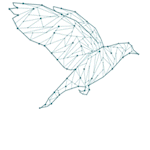FUNDAMENTALS OF COMMUNICATION
Come and discover the fundamentals of communication and how to cultivate it to communicate better, achieve your goals while respecting your personality and those of others.
Goals
• To become aware of one’s position as a communicator and to make it a strength
• Learn to accept the proposals of others and make them “bear fruit” in order to work / co-build with the other and not against the other
• Know how to listen and bounce back
• Develop your ability to let go, your spontaneity and your creativity
• Strengthen your assertiveness and self-confidence in all situations
Benefits
• Better understand the challenges of communication
• Develop better interpersonal skills
• Enjoy interacting
Content
Become conscious and develop your behavioural posture
1) One’s self
• Becoming aware of one’s communication
• Spontaneous and appropriate reaction
• Assertiveness and acceptance to bounce back
• Letting go
2) Connection to others
• Knowing how to listen in order to create connection and bounce back correctly
• Accepting other people’s suggestions
• Getting involved in the present moment
• Developing a posture of usefulness to others
Anchoring through role plays and targeted improvisation exercises
• Strengthening active listening and rephrasing
• Functioning in +/+
• Collaborating while asserting yourself
Conclusion
• Assessment and action plan
• Synthesis of the concepts covered
• Setting individual goals
Target audience
Teams and managers wishing to develop their communication skills.
Prerequisites
No prerequisites.
Learning Method
- Theoretical and practical content (exercises from the actor, role-playing situations).
- This training is based on the knowledge, experiences, questions, situations of the participant in training, and on his or her active involvement to be an actor in his or her training.
- Our training is interactive, benevolent, and based on give- and-take and active listening.
Evaluation methods
• A written questionnaire before the beginning of the course to diagnose and evaluate the initial level and context of the trainees.
• Assessment of skills acquired throughout the session, through multiple exercises.
• At each stage of the training, our trainer checks the understanding of each person, thanks to active listening, questioning and rephrasing to verify the progress made and whether the stage has been assimilated. If this is not the case, the step is repeated, with a personalized exercise
Goals
• To become aware of one’s position as a communicator and to make it a strength
• Learn to accept the proposals of others and make them “bear fruit” in order to work / co-build with the other and not against the other
• Know how to listen and bounce back
• Develop your ability to let go, your spontaneity and your creativity
• Strengthen your assertiveness and self-confidence in all situations
Benefits
• Better understand the challenges of communication
• Develop better interpersonal skills
• Enjoy interacting
Content
Become conscious and develop your behavioural posture
1) One’s self
• Becoming aware of one’s communication
• Spontaneous and appropriate reaction
• Assertiveness and acceptance to bounce back
• Letting go
2) Connection to others
• Knowing how to listen in order to create connection and bounce back correctly
• Accepting other people’s suggestions
• Getting involved in the present moment
• Developing a posture of usefulness to others
Anchoring through role plays and targeted improvisation exercises
• Strengthening active listening and rephrasing
• Functioning in +/+
• Collaborating while asserting yourself
Conclusion
• Assessment and action plan
• Synthesis of the concepts covered
• Setting individual goals
Target audience
Teams and managers wishing to develop their communication skills.
Prerequisites
No prerequisites.
Learning Method
- Theoretical and practical content (exercises from the actor, role-playing situations).
- This training is based on the knowledge, experiences, questions, situations of the participant in training, and on his or her active involvement to be an actor in his or her training.
- Our training is interactive, benevolent, and based on give- and-take and active listening.
Evaluation methods
• A written questionnaire before the beginning of the course to diagnose and evaluate the initial level and context of the trainees.
• Assessment of skills acquired throughout the session, through multiple exercises.
• At each stage of the training, our trainer checks the understanding of each person, thanks to active listening, questioning and rephrasing to verify the progress made and whether the stage has been assimilated. If this is not the case, the step is repeated, with a personalized exercise
Number of participants
- Individual
- Groups : 4 up to 10 participants
Trainer
Actor-consultant, specialised in the techniques of theatre and theatrical improvisation
Duration and format
- 1 day programme
- Other formats: 2 hours, half-day
- In person, on your premises, in a theatre or remotely
Access time
72 hours, adaptable to your needs
Training material
Fundamentals of communication
Fee
Varies according to the duration and number of participants, contact-us!
Accessibility of course for disabled people HERE
Last update 20.03.2023
This training can be tailor-made. You want to know how we could assist you? Contact us!
